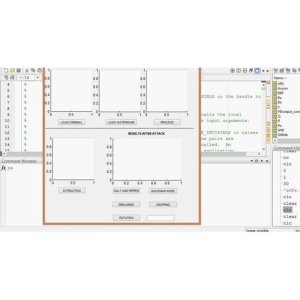Optimizing Wireless Network Performance with Differential Evolutionary Optimization Algorithm
Problem Definition
The challenge of efficiently forming routes in mobile ad-hoc networks (MANETs) for wireless communication has been a significant issue due to the limited parameters considered for routing, including delay, bandwidth, and energy. Current systems are facing challenges as the existing fuzzy logic technique used does not effectively handle the increasing parameters. This limitation results in inefficient route formation, leading to potential delays, bandwidth issues, and energy wastage. The need for a more sophisticated routing system that can effectively manage and prioritize these parameters is crucial in optimizing the performance of MANETs. The inability of the current system to adapt to the changing network conditions and efficiently utilize available resources highlights the necessity for a new approach in routing algorithm design to overcome these limitations and enhance the overall communication efficiency in MANETs.
Objective
The objective of the project is to enhance the efficiency of routing protocols in mobile ad-hoc networks (MANETs) by utilizing the Differential Evolutionary Optimization algorithm. By considering multiple parameters such as delay, bandwidth, distance, energy, average distance within range, and throughput, the project aims to optimize the routing process and improve wireless communication efficiency in MANETs. The project will implement the DE algorithm in MATLAB, conduct simulations with varying scenarios, and compare the results with the existing fuzzy logic technique to demonstrate the superiority of the proposed system in route formation and communication efficiency. This research aims to address the limitations of current routing protocols and provide a more sophisticated approach to managing and prioritizing parameters for optimized performance in MANETs.
Proposed Work
The proposed work focuses on addressing the limitations of current routing protocols in mobile ad-hoc networks by utilizing the Differential Evolutionary Optimization algorithm. This algorithm aims to select the most efficient route by considering various parameters such as delay, bandwidth, distance, energy, average distance within range, and throughput. By incorporating these additional parameters, the project aims to optimize the routing process and improve the overall efficiency of wireless communication in MANETs. The rationale behind choosing the DE algorithm lies in its ability to handle multiple parameters simultaneously, which is crucial for enhancing the routing protocols in the given context. By comparing the results obtained with the DE algorithm against the existing fuzzy logic technique, the project aims to demonstrate the superiority of the proposed system in terms of route formation and communication efficiency.
The project's approach involves implementing the DE algorithm in MATLAB to design and test the innovative application for wireless network communication in MANETs. By varying mobility, the number of nodes, and delay factor in different scenarios, the project aims to evaluate the performance of the proposed system comprehensively. The results obtained from these simulations will be analyzed and compared against the base paper to validate the effectiveness of the proposed approach. By documenting the results in both tabular and graphical forms, the project aims to provide a clear and detailed analysis of how the DE algorithm improves the routing process in wireless communication, thereby addressing the research gap identified in the problem definition.
Application Area for Industry
This project can be utilized in various industrial sectors such as telecommunications, transportation, emergency response, and military operations, where reliable and efficient communication networks are crucial. The proposed solution of using the Differential Evolutionary Optimization algorithm in forming routes for mobile ad-hoc networks can address the specific challenges these industries face in terms of limited parameters considered for routing, inefficient handling of load, and the need for optimal route selection based on multiple factors. By considering parameters like delay, bandwidth, energy, distance, and throughput, the algorithm can significantly improve the network performance and ensure better communication reliability. Implementing this solution can lead to enhanced communication efficiency, reduced network congestion, improved data transmission rates, and overall better network management in various industrial applications.
Application Area for Academics
The proposed project can significantly enrich academic research, education, and training by introducing a more efficient and effective approach to forming routes in mobile ad-hoc networks (MANETs) for wireless communication. By replacing fuzzy logic with the Differential Evolutionary (DE) Optimization algorithm, the project offers a novel solution to the existing challenges faced in routing systems.
Researchers, MTech students, and PhD scholars in the field of wireless communication and network optimization can benefit from the code and literature of this project for their work. They can use the DE Optimization algorithm to explore innovative research methods, conduct simulations, and perform data analysis within educational settings. This project opens up opportunities to study the impact of various parameters such as delay, bandwidth, distance, energy, average distance within range, and throughput on route formation in MANETs.
The project's use of MATLAB software, along with the DE Optimization algorithm, provides a practical platform for conducting experiments, analyzing results, and comparing outcomes with existing fuzzy logic-based systems. The tabular and graphical representation of results allows for a comprehensive evaluation of the proposed system's effectiveness in handling different scenarios, including variations in mobility, number of nodes, and delay factor.
In conclusion, the proposed project offers a valuable contribution to academic research in the field of wireless communication and network optimization. By integrating advanced algorithms and simulation techniques, it has the potential to drive innovation and enhance the understanding of route formation in MANETs. Future research can build upon this work by exploring additional optimization strategies, expanding the scope of parameters considered, and extending the applications of the DE Optimization algorithm in various networking environments.
Algorithms Used
The Differential Evolutionary Optimization Algorithm is used in this project to select the best route based on parameters such as delay, bandwidth, distance, energy, average distance within range, and throughput. The algorithm includes a cost function that evaluates fitness by considering weightage given to distance, delay, energy, and bandwidth. By replacing fuzzy logic with the DE Optimization algorithm, the project aims to improve route selection efficiency and accuracy. Results of various scenarios are saved and compared against the base paper, showing that the proposed system effectively achieves better results.
Keywords
SEO-optimized keywords: Wireless network communication, Mobile ad-hoc networks (MANET), Differential Evolutionary Optimization Algorithm, Mobility, Node Number, Delay Factor, Fuzzy Logic, Bandwidth, Energy, Distance, Throughput, MATLAB, Routing, Route Selection, Optimization Algorithm, Parameters, Wireless Communication, Routing Efficiency, Bandwidth Management, Energy Consumption, Delay Optimization, Route Formation, MANET Optimization, Evolutionary Algorithms.
SEO Tags
wireless network communication, Mobile ad-hoc networks, MANET, Differential Evolutionary Optimization Algorithm, Mobility, Node Number, Delay Factor, Fuzzy Logic, Bandwidth, Energy, Distance, Throughput, Optimization Algorithm, MATLAB, routing in MANETs, route optimization, wireless communication, network parameters optimization, DE algorithm, mobile ad-hoc network routing, route selection algorithm, energy-efficient routing, bandwidth-aware routing, route optimization techniques, fuzzy logic in routing, optimization in wireless networks, wireless network performance analysis, MATLAB simulation, route performance evaluation.
| Shipping Cost |
|
No reviews found!




















































No comments found for this product. Be the first to comment!